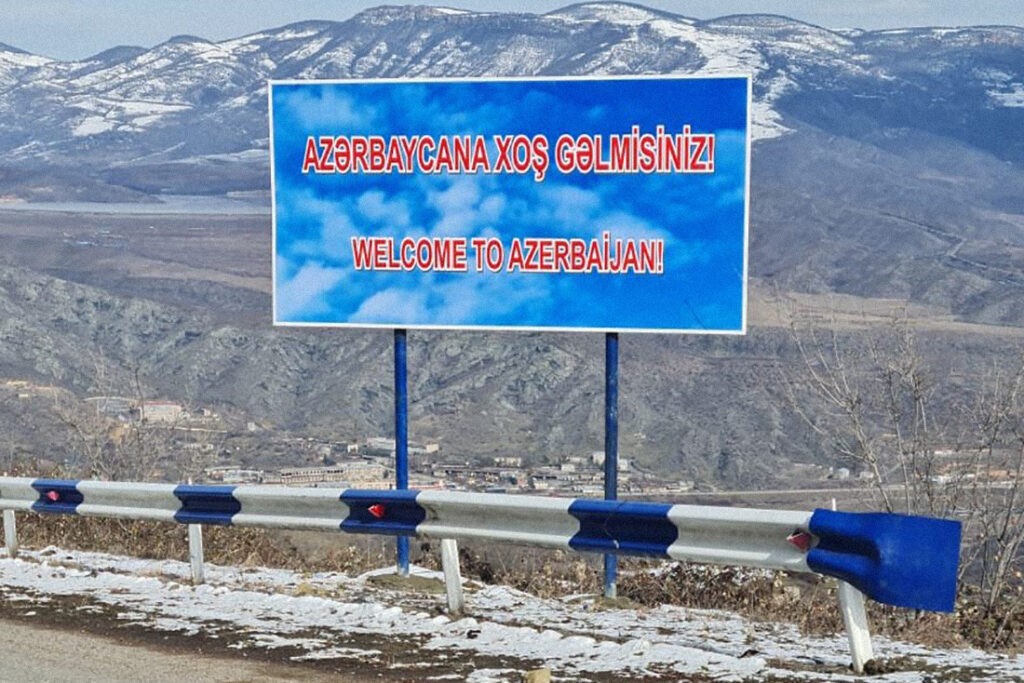
The Azerbaijani Defence Ministry issued two statements on the morning of 16 November. The first reported that skirmishes broke out on the Tovuz-Tavush section of the Azerbaijan-Armenia border — the second, that skirmishes broke out near on the Kelbajar-Gegharkunik and Lachin-Syunik sections of the border.
The Armenian Defence released their own statement shortly thereafter reporting that the Azerbaijani military shelled Armenian positions earlier in the day, and that Armenian armed forces had ‘retaliated’.
In a Monday meeting of the National Security Council (NSC), Armenian Prime Minister Nikol Pashinyan announced that on November 14 Azerbaijani troops had crossed the border into Armenia in an undisclosed location.
According to a statement released by the NSC, following the meeting Azerbaijani forces briefly laid ‘siege’ to four positions held by the Armenian military. The NSC statement further claims that after negotiations both Azerbaijani and Armenian forces reportedly pulled back.
No casualties have been reported by either Armenian or Azerbaijani authorities.
On 15 November, Armenia’s Defence Minister Arshak Karapetyan was dismissed and replaced by Deputy Prime Minister Suren Papikyan, who previously served as Minister of Territorial Administration and Infrastructure. During the Security Council meeting, Pashinyan said that Karapetyan’s dismissal was connected to the recent incidents on the Armenia-Azerbaijan border.
Checkpoints reportedly isolate villages
Azerbaijan has also set up customs checkpoints on the Kapan-Chakaten section of the Goris-Kapan road — 20 km of which are under Azerbaijani control. Armenian authorities have announced that they will set up reciprocal checkpoints. The road is the only connection between Kapan, the capital of Syunik province, and five border villages.
According to Armenia’s National Security Service, a bypass road will be completed by the end of the year.
In the meanwhile, the villages are almost completely isolated. Local media report that schools have moved to remote learning and that the nearest hospital is now at a distance of 130 km.
This is only the second set of checkpoints set up over the last week. On Thursday, Azerbaijan set up checkpoints on a different section of the Goris-Kapan road, however, by that time a bypass road had already been completed.
[Read more: Azerbaijan sets up customs checkpoints on key Armenia road]
Several days of escalation
On 14 November, Azerbaijani Foreign Ministry spokeswoman Leyla Abdullayeva announced that on 9 November, ‘about 60’ Armenian soldiers ‘gathered’ near the Azerbaijani border ‘in the direction of Lachin’, and that the Azerbaijani military had taken ‘relevant measures’ in response. The same day a video was published by Azerbaijani media apparently showing Azerbaijani soldiers capturing an Armenian outpost.
Azerbaijani authorities later reported that the Armenian soldiers had been released after Russian mediation.
The previous day, Azerbaijan’s Defense Ministry reported that Armenian armed forces units fired at Azerbaijani positions located in the Kelbajar region ‘using weapons of various calibres, sniper rifles and grenade launchers’. No casualties were reported, though there were reports of damage to equipment and vehicles.
The same day, a Nagorno-Karabakh resident threw an explosive device at Azerbaijani soldiers stationed near Shusha (Shushi). The man was detained by Russian peacekeepers and transferred into the custody of Nagorno-Karabakh authorities.
Three Azerbaijani soldiers were injured in the incident.
Several days prior Azerbaijani soldiers shot dead a Nagorno-Karabakh resident who was repairing water pipes near Shusha, three other workers, also residents of Nagorno-Karabakh were injured.
[Read more: Major road closed as Nagorno-Karabakh civilian reportedly shot dead]
For ease of reading, we choose not to use qualifiers such as ‘de facto’, ‘unrecognised’, or ‘partially recognised’ when discussing institutions or political positions within Abkhazia, Nagorno-Karabakh, and South Ossetia. This does not imply a position on their status.








